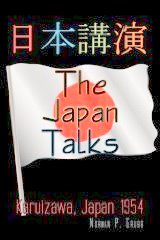 Attila Kisbenedek/Agence France-Presse — Getty Images Attila Kisbenedek/Agence France-Presse — Getty Images |
| On Sunday, Princess Mako, the eldest grandchild of Emperor Akihito of Japan, and Kei Komuro, her college boyfriend, are set to officially announce their engagement. |
| Law and tradition dictate that the princess, by marrying a commoner, will become a commoner herself. (Above, the princess with her father.) |
| Although this has happened before, the engagement has fanned a debate about whether the Imperial Household Law, which regulates Japan’s first family, needs changing. |
| To the Japanese public, the tradition appears increasingly anachronistic. Opinion polls find large majorities favor allowing women to remain in the imperial family after marriage, and allowing them to become sovereign. |
| After all, the wife of Akihito was a commoner before their marriage. Akihito’s successor, Crown Prince Naruhito, also married a commoner. |
| Even conservatives who oppose such changes see the threat of a potential succession crisis. The family now has only five men, including Akihito. |
| Japan has the oldest continuous monarchy in the world, but only eight women have ruled in the nearly 2,700-year history of the Chrysanthemum Throne. |
| People close to the emperor say that he agrees women should be allowed to succeed him. |
| “I don’t think he sticks to the narrow idea that only a male on the throne is acceptable,” a friend of the emperor recently told our correspondent. |
| Patrick Boehler contributed reporting. |
Thursday, August 31, 2017
the princess with her father
Monday, August 14, 2017
“the day the light returned”
 Lee Jin-man/Associated Press Lee Jin-man/Associated Press |
| North and South Korea have agreed on very little in recent decades, but this week their shared past means the two countries have a rare holiday in common: Independence Day. |
| Called Gwangbokjeol (“the day the light returned”) in the South and Chogukhaebangŭi nal (“Liberation of the Fatherland Day”) in the North, the holiday is what is known in the West as V-J Day, or Victory Over Japan Day. |
| The Japanese empire formally surrendered on Aug. 15, 1945, ending World War II and liberating the Korean Peninsula, which had been under colonial rule since 1910. |
| The government of South Korea was established on the same day three years later, and the two countries were divided. |
| The holiday is celebrated with patriotic fanfare in both countries, although the North has found new ways to reassert its independence. For the 70th Liberation Day in 2015 — amid renewed military tensions with the South — Pyongyang created its own time zone. |
| “The wicked Japanese imperialists committed such unpardonable crimes as depriving Korea of even its standard time,” the North’s state-run news agency said. |
| The country had previously been in the same time zone as South Korea and Japan, but its clocks are now set 30 minutes behind. |
| Inyoung Kang contributed reporting. |
Subscribe to:
Posts (Atom)













